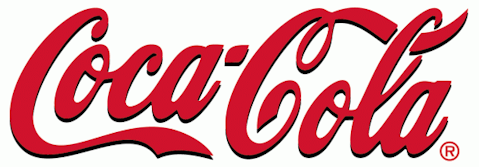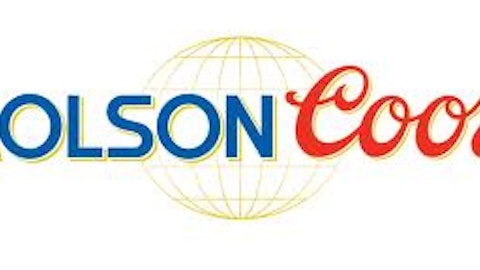Common sense says that the interaction between quality and price should determine consumer demand for a product, but that is rarely the case when it comes to branded products.
In his 2003 book, How Consumers Think, Gerald Zaltman writes, “When it comes to buying, 95% of our decision making takes place in the unconscious mind.” The conscious mind evaluates the price and quality of a product, but the unconscious mind shapes the customer’s attitude toward a product. Therefore, consumer- products companies should strive to appeal to those unconscious minds rather than attempt to create the best-quality product.

Competing for minds, not taste buds
There is no better example of the power of the unconscious mind in purchase decisions than that provided by the carbonated soft-drink market. In the famous Pepsi challenge of 1975, it was revealed that consumers actually prefer the taste of Pepsi over that of Coke. Yet sales of Coke and Diet Coke still far outpace those of Pepsi. When New Coke was introduced in the 1980s, blind taste tests revealed the new formula to be far superior to the old. Yet Coke drinkers rebelled against the new product and demanded the old one back.
Consumer reactions to both the Pepsi challenge and the introduction of New Coke have informed three decades of operations at beverage giants The Coca-Cola Company (NYSE:KO) and PepsiCo, Inc. (NYSE:PEP). Each company spends upwards of $3.5 billion each year to advertise their products around the world. The companies appeal to cultural norms and the desired lifestyles of their target audiences so that consumers unconsciously link the products to themselves.
The Coca-Cola Company (NYSE:KO)’s attempt to sell a feeling, rather than a soft drink, is evident in its marketing slogans:
- India: Whatever you wish will come true, enjoy Coca-Cola!
- 1980 Australia: Smile. Coke adds life
- 2008 Spain: Spreading Happiness since 1886
- 2009 U.S.: Open Happiness
The Coca-Cola Company (NYSE:KO) advertises at sports arenas, theme parks, and other places where people are generally in a good mood. This causes people to unconsciously link Coke to happiness.
Likewise, if you watch a Pepsi commercial, it does not try to sell consumers on taste. Instead, the soft drink relies on celebrity endorsements to market the drink as a product for “the next generation.” The implication is that if you want to be at the forefront of your generation, you should be a Pepsi drinker.
Not surprisingly, a study published in the January 2012 edition of Contemporary Marketing Review reveals that younger consumers are more likely to prefer Pepsi over Coke than older consumers. This makes sense in light of Pepsi’s focus on the younger generation, while Coke continues to build its brand around people for whom family values and nostalgia are more important than celebrity lifestyles.
Case in point: Monster Beverage
It took The Coca-Cola Company (NYSE:KO) and PepsiCo, Inc. (NYSE:PEP) many decades to figure out that advertising was the most important aspect of their business, but Monster Beverage Corp (NASDAQ:MNST) started out with advertising at the core of its business model.
While The Coca-Cola Company (NYSE:KO), PepsiCo, Inc. (NYSE:PEP), and affiliates of the respective companies perform production, bottling, and distribution functions, Monster Beverage Corp (NASDAQ:MNST) focuses solely on the marketing function. The company outsources the manufacture and distribution of its product and simply performs the marketing function for its brands.
Instead of having to make enormous capital outlays for production equipment and a global distribution network, Monster Beverage Corp (NASDAQ:MNST) uses the cash saved by outsourcing the work to spend more on promoting its brand; the company spent $165 million — 8% of revenue — on advertising in 2012, while The Coca-Cola Company (NYSE:KO) and PepsiCo, Inc. (NYSE:PEP) spent 7% and 6% of sales on advertising, respectively.
Monster Beverage Corp (NASDAQ:MNST)’s capital-light business model allows it to generate higher returns on capital despite a costlier advertising budget. In other words, Monster Beverage Corp (NASDAQ:MNST) earns a higher profit by spending more cash on the important stuff — advertising — and less money on the less important stuff — production and distribution. As a result, shareholders get more bang for their buck.

The ability to spend a high percentage of revenue on advertising may be the reason that Monster continues to gain market share to the detriment of Coca-Cola and PepsiCo, Inc. (NYSE:PEP).
The business model has its drawbacks, however. Although consumers’ minds are won and lost in the advertising realm, distribution provides an important barrier to entry that gives control to large beverage distributors. Monster’s two largest distributors are Coca-Cola and Anheuser-Busch InBev NV (ADR) (NYSE:BUD).
Both companies have enormous bargaining power because Monster Beverage Corp (NASDAQ:MNST) would be unable to deliver its product without them. Coca-Cola already has a small cadre of energy drink brands, most notably Full Throttle. If Monster ever became too much of a headache for Coca-Cola, it could easily ruin its smaller rival.
Bottom line
Advertising is the most important function of beverage companies. Although there is always a constituency for great taste and low prices, the vast majority of consumers make purchase decisions based on unconscious factors that have little to do with the physical product. Coca-Cola and PepsiCo, Inc. (NYSE:PEP) have changed their strategies to target the unconscious mind, while Monster is positioned entirely around its advertising function.
Ultimately, the spoils go to the companies that produce the most effective advertising campaigns. Monster Beverage Corp (NASDAQ:MNST) has the right idea by focusing on advertising, but The Coca-Cola Company (NYSE:KO) and PepsiCo, Inc. (NYSE:PEP) have worldwide distribution networks that new entrants are unable to replicate. Most likely, Monster will continue growing until it becomes a real pain for Coca-Cola, and then the king of carbonated soft drinks will likely decide to acquire its smaller competitor. That would be a win-win for all shareholders.
The article These Companies Sell Lifestyles, Not Beverages originally appeared on Fool.com and is written by Ted Cooper.
Ted Cooper has no position in any stocks mentioned. The Motley Fool recommends Coca-Cola, Monster Beverage, and PepsiCo. The Motley Fool owns shares of Monster Beverage and PepsiCo.
Copyright © 1995 – 2013 The Motley Fool, LLC. All rights reserved. The Motley Fool has a disclosure policy.




